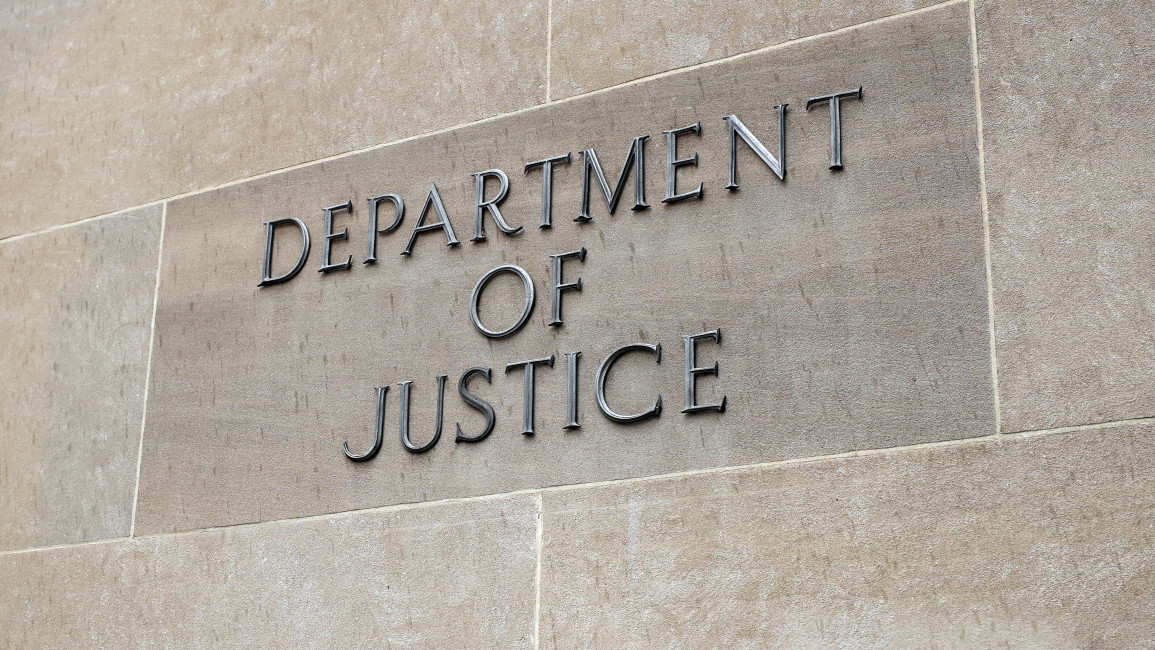Muslims appeal for mercy for Minnesota mosque bombers
Following the sentencing of two of the three 2017 Minnesota mosque bombers Joe Morris and Michael McWhorter, community leaders on Tuesday held a press conference in which they expressed their wishes for community healing and mercy for the perpetrators who have voiced remorse for their crime.
Federal Judge Donovan Frank handed down the sentences – around 14 years for Morris and around 16 for McWhorter – far less than their co-perpetrator who was convicted in 2020 and sentenced in 2021. The judge cited Morris' abusive childhood and mental health struggles for the lighter sentence.
"Today is a historic day for us as we stand together here after the bomb landed here before morning prayer," said Imam Mohamed Omar, the mosque's executive director, who was present at the time of the bombing but was unharmed.
"That was, for us, a horrifying moment. Through that we lost our sense of security, it damaged us as a community, brought us a lot of fear, and we lost a lot of family members. A lot of community members who used to come to the centre almost didn't come back until today."
He emphasised that because of their faith they wanted to show forgiveness and compassion for McWhorter and Morris.
"Because of our faith and what brought us together in this building, this is our mosque, and the reason we came here is to worship God, be kind, and to love one another. That very value is one that we lived today," the imam added.
The two men, who were linked to the far-right group the White Rabbit Militia from Illinois, were convicted in 2020 of the 2017 bombing of the Dar Al Farooq Community Center in the Twin Cities suburb of Bloomington, which caused significant damage to the mosque but did not harm worshippers.
A third individual, Emily Claire Hari, who was previously identified as Michael Hari, is already serving a 53-year sentence after being convicted at trial in 2020 for planning the attack.
Tuesday's sentences could have been far more severe, as such crimes tend to result in minimum sentences twice as long. Prior to the sentencing, a coalition of faith leaders signed a letter calling for forgiveness.
"The harm that was done is real, the crime that was committed is real, the horror of what happened that day is real, but what’s also real is our opportunity to offer real forgiveness, and lead by example. We believe that only through forgiveness can we have any real chance to heal and move forward," reads part of the letter, signed by more than 100 faith leaders and representatives.
The signatories were advocating for restorative justice, in the hopes that these two perpetrators can be rehabilitated due to their remorse over their crime, which they contrast with the lack of remorse from Hari, the attack's organiser.
"At a moment when our country has been torn in half by the continuous sorting of human beings into categories of evil and hero, worthy and deplorable, good soul and bad soul, bad communities, and good communities, we find the need for the court to exercise a nuanced and restorative approach to justice in this case more necessary," an excerpt of the letter had said.
The holy month of Ramadan, which began nearly two weeks ago, is a time of mercy, Mohamed Ibrahim, deputy director of the Council on American-Islamic Relations-Minnesota, told The New Arab.
"Ramadan is a time of mercy," said Ibrahim. "With retribution, it's important to have mercy, to show that we're all human beings."
He believes retribution is important, but he also thinks there needs to be a balance so that perpetrators can become rehabilitated and reintegrate into society.
"A lot of this is hate and fear is grown out of ignorance," Ibrahim said, noting that another perpetrator of an anti-Muslim hate crime in Minnesota was required to clean the mosque he’d attacked as part of his punishment.
For the most part, he sees that this tragedy has brought Minnesotans together.
A mosque in Minnesota has been bombed in a suspected Islamophobic attack, as worshipers prepared for morning prayershttps://t.co/PrhGtueihS
— The New Arab (@The_NewArab) August 6, 2017
"I think what this hate incident did was create more love and unity," he said, noting that on Fridays non-Muslims can be seen by mosques showing their solidarity. "A lot of allies have stood by the Muslim community. There's no place for hate at all."
Still, with all of the talk of forgiveness and community building, Ibrahim is well aware that plenty of work lies ahead in developing a safer and more tolerant society. Hate crime remains a serious threat across Minnesota, and many Muslims continue to live in fear.
As such, he and other community leaders are pushing for a state law that would allow for people to report hate crimes through organisations that they trust, which would then report to the police. Such laws exist in other states, which he believes could also be effective in Minnesota.
"The biggest thing is we want people to come to masjid to pray and feel safe," he said.


![Minnesota Tim Walz is working to court Muslim voters. [Getty]](/sites/default/files/styles/image_684x385/public/2169747529.jpeg?h=a5f2f23a&itok=b63Wif2V)




![Debris near Rafic Hariri International Airport [Getty]](/sites/default/files/styles/image_330x185/public/2176162423.jpeg?h=a5f2f23a&itok=MCSK9mkM)
![An Israeli air strike on Jabalia killed teenage journalist Hassan Hamad [Screengrab/X]](/sites/default/files/styles/image_330x185/public/2024-10/hassan%20hamad1.jpg?h=c12e0b96&itok=Rd_dyCVp)
